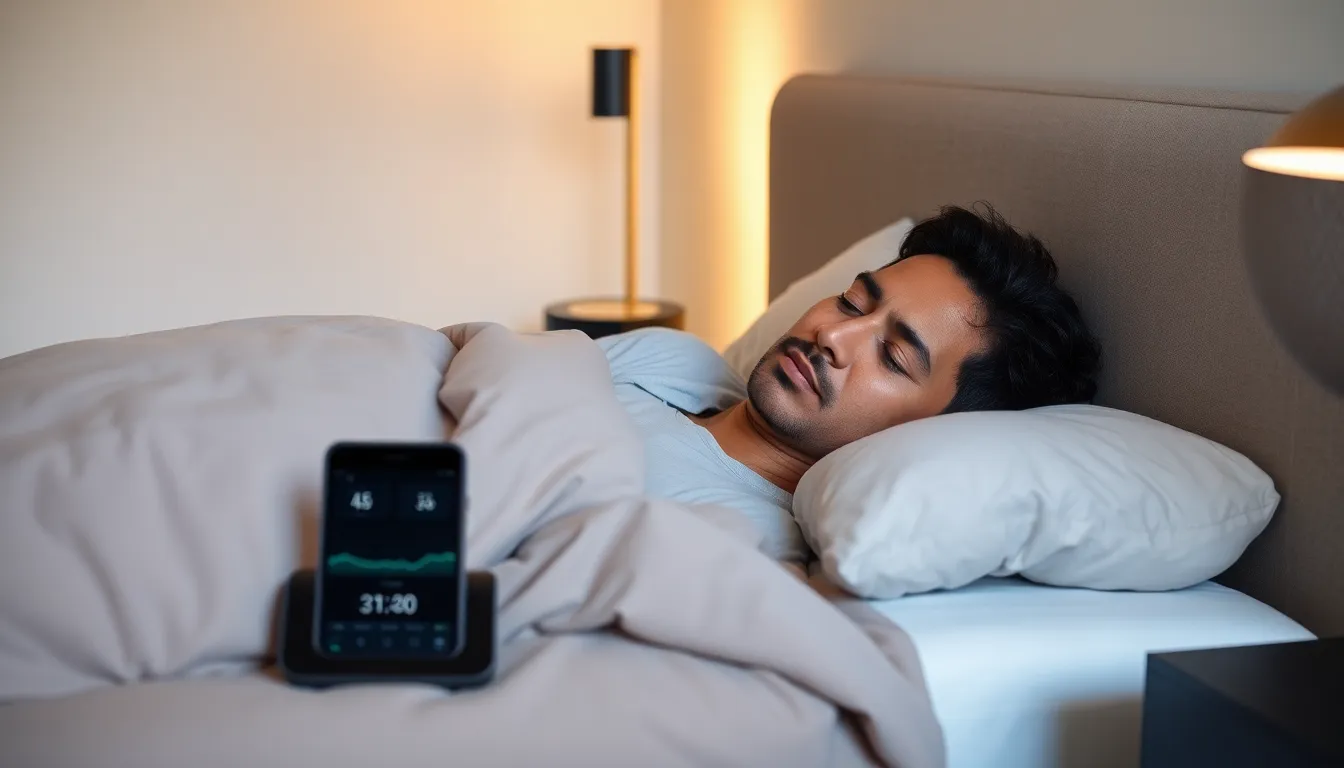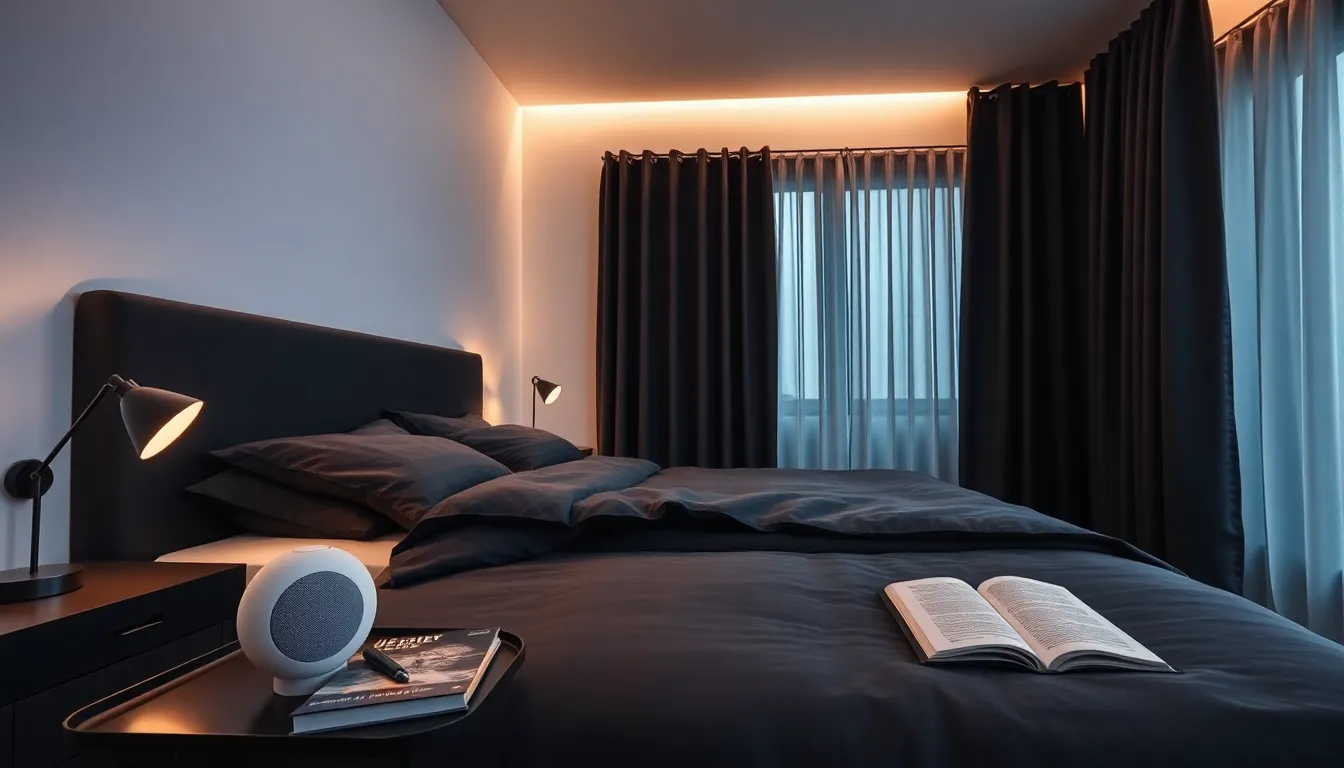Imagine if you could wake up feeling refreshed after just four hours of sleep, ready to conquer the day ahead. Sounds like a dream, right? Well, for some, it’s a reality. The art of maximizing sleep efficiency has people exploring revolutionary techniques to make those precious hours count. Buckle up: this intriguing journey into sleep might be the key to reclaiming your time.
Table of Contents
ToggleUnderstanding Sleep Cycles

To navigate the world of efficient sleeping, understanding sleep cycles is crucial. Each cycle lasts approximately 90 minutes and consists of different stages. These stages include light sleep, deep sleep, and REM (rapid eye movement) sleep, each serving a unique purpose for the body and mind.
The Importance of Sleep Stages
Light sleep is essential for transitioning into deeper stages. This is when the body begins to relax, the perfect starting point for efficient sleep. Deep sleep focuses on physical restoration, while REM sleep is essential for cognitive functions like memory and creativity. If someone wants to maximize four hours of sleep, they need to ensure they are cycling through these stages effectively.
Adopting strategies that help him or her fall into those stages quickly can make a world of difference.
Finding Your Optimal Sleep Rhythm
Finding that sweet spot in sleep rhythm is vital for achieving sleep efficiency. It’s not just about the hours spent in bed: it’s about how those hours are spent.
Techniques for Maximizing Sleep Efficiency
To truly make the most out of them, tracking sleep cycles using apps can prove beneficial. Some individuals find that ambient noise or white noise helps them fall asleep faster, indicating better efficiency. Also, prioritizing a consistent sleep schedule will set the body’s internal clock, enabling quick transitions between sleep stages.
Creating a Sleep-Conducive Environment
Creating an inviting sleep environment also plays a substantial role. Dark, cool, and quiet spaces are ideal for boosting the quality of sleep. Consider investing in blackout curtains and a quality mattress to maintain optimal conditions.
Utilizing Power Naps
And let’s not forget the wonder of power naps. A short nap of around 20 minutes can recharge the battery without ruining the nighttime sleep. Learning when and how to incorporate these napping strategies will help anyone achieve more restful sleep.
Strategies for Transitioning to Shorter Sleep Durations
Transitioning to shorter sleep durations doesn’t have to feel like torture. With the right strategies in place, it can feel more like a gradual adventure.
Gradual Adjustment of Sleep Time
Start by gradually adjusting the bedtime. Rather than making drastic cuts, shift the bedtime and wake-up time by 15 to 30 minutes earlier or later each week. This slow adjustment can help the body adapt with minimal shock.
Implementing Time-Blocking for Sleep
Time-blocking for sleep is another effective technique. By scheduling specific times for winding down, one can ensure they commit to their sleep goals as seriously as they would with work meetings or important events.
Physical and Mental Preparations for Sleep
Preparation is key. Both physical and mental readiness can significantly influence sleep quality.
Managing Stress and Anxiety
He or she can manage stress by incorporating journaling routines or mindfulness practices. Writing thoughts down can declutter the mind, paving the way for peaceful slumber.
Incorporating Relaxation Techniques
Incorporating relaxation techniques such as yoga or meditation just before bed can help a smoother transition into sleep, genuinely contributing to those precious four hours.
The Role of Nutrition and Caffeine
Nutrition and caffeine often get overlooked in discussions about sleep efficiency, yet they play impactful roles.
Foods That Promote Sleep Quality
Eating foods rich in magnesium or tryptophan, such as nuts and turkey, can assist in promoting sleep. Dinner should ideally be light, allowing the body to digest without feeling heavy.
Caffeine Timing and Its Impact
But what about caffeine, you ask? Timing matters here. Consuming caffeine late in the day can disrupt the body’s natural sleep cycle, making it far more challenging to fall asleep quickly and efficiently.
Evaluating Long-Term Impacts of Sleep Reduction
While aiming for fewer hours can seem enticing, evaluating the long-term impacts of reduced sleep is crucial.
Potential Health Risks
Extended periods of sleep deprivation can lead to severe health risks such as heart problems, weakened immune systems, and mood disorders. He or she might experience increased irritability, which can severely affect daily life.
When to Seek Professional Help
When implementing these strategies, if they don’t produce the desired effects, consider consulting with a sleep specialist. In some cases, underlying sleep disorders like insomnia could require professional intervention.



